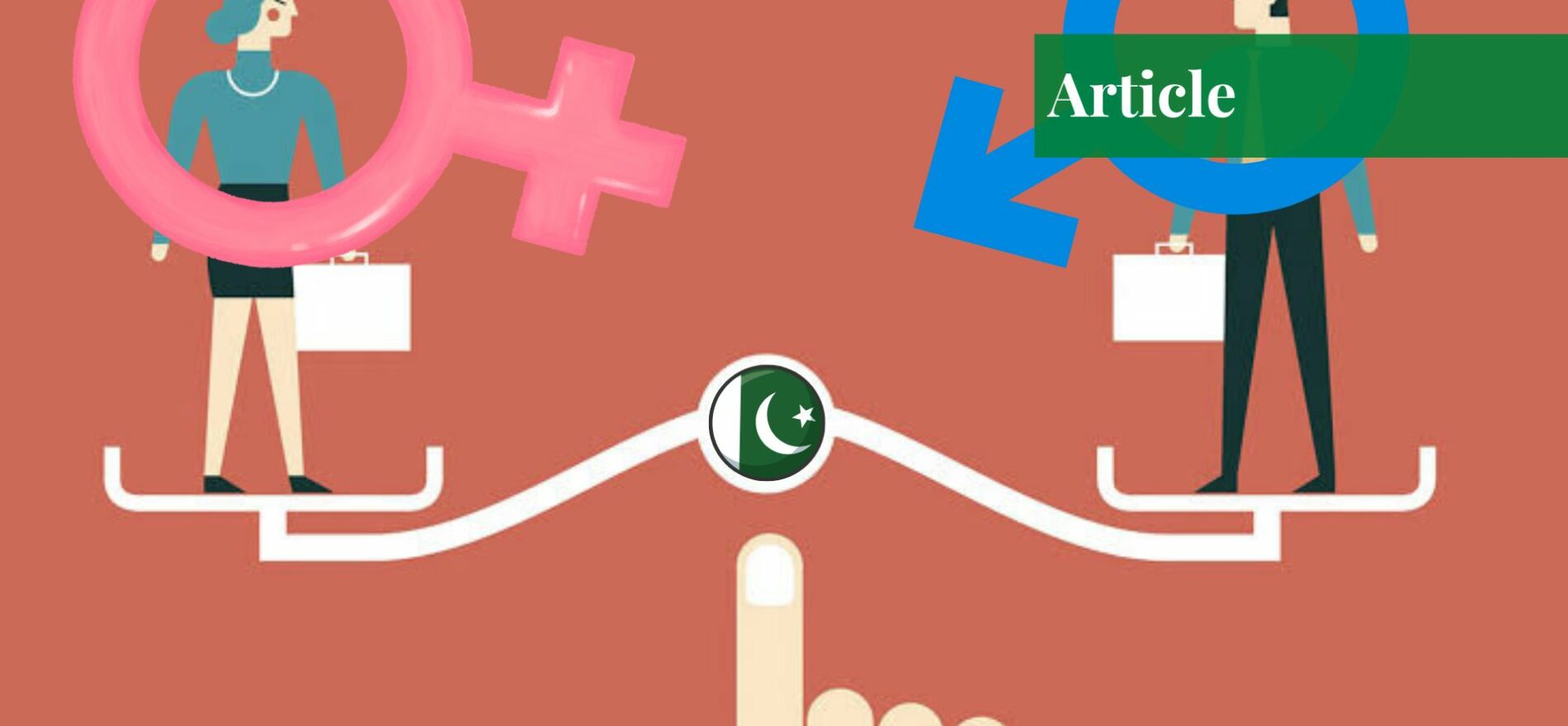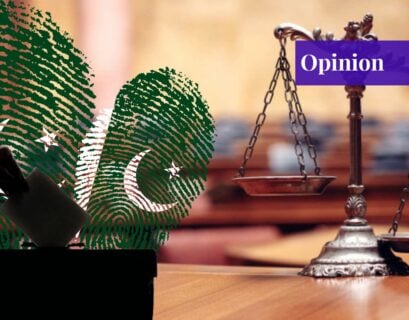Ms Faiza Ihsan is a student of International Relations with a special focus on gender development and youth mobilization.
Unlocking women’s productivity is essential and requires breaking through cultural barriers and policy intervention on multiple fronts. Women are people; they are economic powerhouses, as M. Ali Jinnah, the founder of Pakistan, rightly emphasized that “No nation can prosper without women being side by side”. This clearly highlights the crucial connection that exists between women and economics.
A term used for such a relationship is ‘Womenomics’, which was coined by Kathy Matsui and launched by Japan’s Prime Minister Shinzo Abe in 2013. This term has been used to accelerate economic growth and mobilize women in the country. Therefore, it would not be surprising to acknowledge the profound effect of women on the economy.
The principles of Womenomics can be applied in Pakistan to tap the full potential of women and let them play their part in economic development and progress. According to a report, if there were gender equality in economic participation, Pakistan’s GDP would have increased by 60% by 2025. Closing the gender gap and empowering women is crucial for the progress and development of any country.
If one takes the case study of Finland, it has come a long way in successfully implementing gender equality laws in the country. The distinct factor that has enabled Finland to mobilise its women is its constitution which is a depiction of gender equality. Pakistan must avail the opportunity to learn lessons from Finland and modify its policies and procedures to incorporate gender equality frameworks. This will enable Pakistan to mainstream gender equality in the country and help women to voice out against issues including gender-based violence and discrimination.
Political empowerment is another dimension that needs to be addressed in mobilizing women in Pakistan. Pakistan is ranked 95 out of 146 countries concerning women’s political participation in the country. Political mobility of women in Pakistan can be achieved by enhancing the integration of women on political platforms. Many females want to become a part of the political structure, but financial constraints become hurdles in the way.
Political parties in Pakistan can follow suit of New Zealand by endorsing gender equality within the political arena. Women’s political representation should be increased by organizing special women-centric training programs and creating safe and sound political spaces for women to feel empowered and comfortable. Highlighting the achievements and successes of women in politics and breaking through barriers can help motivate existing and aspiring female leaders.
Pakistan can advocate the stories of successful women politicians such as Angela Merkel, Margaret Thatcher, and Indra Gandhi, and provide mentoring programs for young women interested in pursuing a career in politics. Per the Global Gender Gap Report 2023, Iceland has been ahead of the game in achieving gender equality for the last fourteen consecutive years and successfully closed more than 90% of the gender gap. In the field of education and health, it became the first nation to close the gender gap wholly in the year of 2009.
The most incredible initiative that Iceland took was the inclusion of gender equality in its curriculum at all levels which proved to be a step in the right direction. Article 23 of the Act on Equal Status and Equal Rights of Women and Men emphasizes the urgency of teaching gender equality at all educational levels. Pakistan must get insights from Iceland and apply laws and practices to mobilize its women.
The role of women as educators is immensely significant for transitioning the country from illiterate to literate. However, women in Pakistan face gender stereotypes that must be challenged. The Single National Curriculum (SNC) of Pakistan should be designed in a way that promotes gender diversity at all grade levels, highlighting the accomplishments of successful women across different fields.
In South Asia, Bangladesh has clearly manifested improvements concerning gender equality in the workplace. Bangladesh made sure to utilize international aid at the right place. From 1970 to 2015, it devoted its efforts to projects around gender and development. One remarkable initiative is the Grameen Bank, a microfinance organization, which provides funds and loans to women entrepreneurs to make them financially stable and independent. This step has not only mobilized their women but also positively impacted the overall economy of the country.
As per the World Bank report, the financial inclusion of women in Pakistan is a $500m market opportunity that can assist in the prosperity of the ailing economy. As per the Global Gender Gap Report 2023, there are only four countries i.e. Iran, Algeria, Chad, and Afghanistan below Pakistan. This is really concerning because inequality can have far-reaching consequences for the revival of a staggering economy.
Coordinated efforts from individuals, government, and civic organizations are needed to oppose and alter societal norms and biases that have been ingrained in the fabric of our society. By encouraging women’s empowerment, a country can unfold its optimum potential and interests from its contributors in different areas like education, business, medical management, and governance.
It is crucial for Pakistan and any other country that experiences gender inequality to combat the gender gap and to promote gender equality, as it is an essential part of development and to have an equal and just society for everyone.
If you want to submit your articles, research papers, and book reviews, please check the Submissions page.
The views and opinions expressed in this article/paper are the author’s own and do not necessarily reflect the editorial position of Paradigm Shift.



















